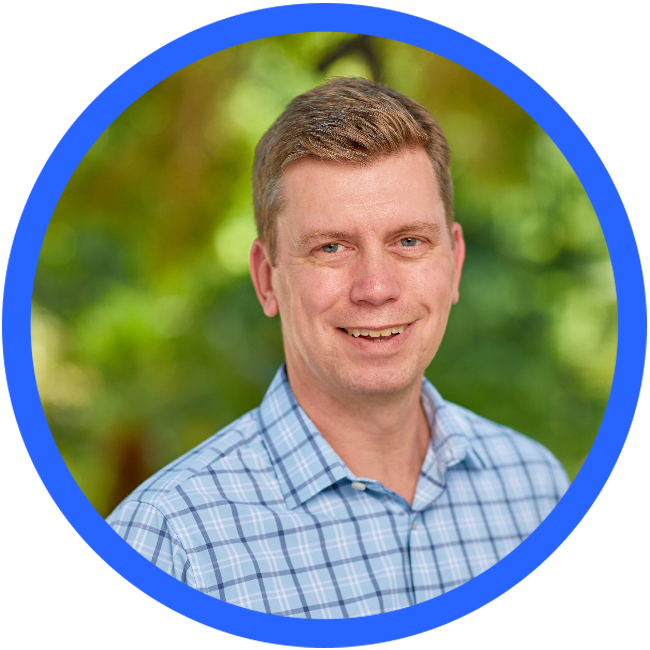Promoting Innovation to Leadership at 100-Year-Old Moody’s


Keith Berry is General Manager of the KYC Solutions business at New York-based Moody’s, where he promotes innovation across a passionate and dedicated organization focused on helping customers understand who they are doing business with and why it matters. Keith joined Moody’s in 2008 and has held a variety of roles leading product, software engineering, and professional services teams. In 2016, Keith founded the firm’s innovation unit, the Moody’s Analytics Accelerator, which he led until January 2021. Currently based in the New York metro area, Keith has lived and worked in London, San Francisco, Paris, and Hong Kong.
How did you first get interested in Lean Startup?
My background is as a software engineer and I did a lot of agile software development when that was still quite a new idea. But you can run the world’s best agile software development project and deliver a piece of software that potentially nobody might want to buy. That was something that kind of puzzled me about agile. It took us from the world of software development where people never knew whether you were going to deliver or not to a place where delivering the software was more predictable. But you could still build something that was a commercial failure.
I also did an MBA, and as part of that I did a number of classes around entrepreneurship and lean approaches to testing new ideas. I discovered I really enjoyed the startup stuff but I wasn’t in the right place in my life to jump ship and do a startup. I went to Moody’s to run a number of software engineering teams, then over the years I moved more into a business facing role. And as I did, I was a strong advocate at Moody’s that we should be following more Lean Startup type approaches, testing ideas very early, testing them with customers. I thought everything in the Lean Startup space was a very nice way of taking a lot of ideas in the agile world and applying them to the business side of things.
How did you come to found the Analytics Accelerator? Why did you think promoting innovation was something Moody’s needed, and why were you the person to lead it?
As I said, I did a number of roles at Moody’s, ending with running one of our business lines. And as I came to the end of that spell, our board was putting a lot of focus on everything that’s happening in FinTech. They were asking our CEO lots of questions about how we were innovating and staying ahead of the curve. After a two-day workshop about innovation where we brought in various startup founders to talk to us, there was a decision made that we needed to have somebody thinking about innovation as a full-time job. And that somebody should be on the executive team tasked with that. I was promoted and given this role leading what became the accelerator and creating this innovation function for the company, which had never been done before. Why me? I think because I had this interesting background of being a technologist, and I’d been pretty passionate about the Lean Startup ideas and applying them.
I was very lucky. It was the right time and I was asked to take this on as a major strategic initiative. We were starting from a blank sheet of paper, but we did have great senior level sponsorship.
When you look back on it now, are there ways you can see that it very obviously has changed the products that you make, the processes at the company, or the culture of the company?
We had two or three dimensions to what we were trying to do. First, it wasn’t innovation for the sake of being a lab. We were looking to generate new revenue by launching new products. At the same time one of the goals was to experiment with new technologies–so, don’t just build another business exactly like the businesses we’ve got, let’s look at areas where there’s technology disruption. So there was that second piece. And then the third piece was to help change the culture in the organization and make the employees feel like Moody’s is innovating– to try and bring innovation to be much more a core value of the organization. Those were our three high-level objectives.
We started in 2016, so it’s five and a half, nearly six years ago now. And I would say, I think we succeeded in all three of those. We’ve actually really changed the way a lot of teams do product development. We launched some new products, one of which is based on AI and machine learning and that led to us building a complete new business that’s now a strategic initiative for the company. It has thirty or forty employees who are now central to a lot of the analytics we’re doing across the company.
We definitely improved the innovation scores significantly. We changed the company’s dress code–we used to have a dress code, now we don’t! We created a growth board that a lot of our C level executives are part of, to govern some of those new strategic initiatives. We started minority investing in startups, which the company had never done a lot of before. We ran a lot of innovation challenges that brought ideas from the employee base up.
Meeting with organizations in very different fields, all trying to apply Lean Startup to innovating, was really interesting and powerful.
What’s the current state of the Accelerator program?
We actually reorganized the company back in January 2021. I’m now in a different role, running the fastest growing business unit in the company. And I’m applying a lot of the innovation ideas that we had. The Accelerator still exists, and it’s moving into its second iteration. We brought in a new leader from the outside who’s thinking about version 2.0, in full transparency, so it’s kind of almost reinventing itself.
And what has the effect been on the company of that shift?
When we did this big reorganization, that original team was kind of broken up. We built the core accelerator team up to about sixty people over those five years, and a number of them have rotated out into more senior roles across the organization. They’ve all taken the approaches that we were using to do product development into those areas, so now we have multiple business units who are basically doing Lean Startup. They’re really applying what we did in the accelerator much more broadly across the organization. Those capabilities have been embedded in every business in the company, and it’s a core central competency that we have.
What’s something that you see in the world that you think is ripe for innovation?
Oh my goodness, that’s a big topic. I would say at the top of mind right now is education. Education is in a really interesting place. My oldest is at university. I’ve got twins who are seniors applying to universities right now. And I’ve got a younger one who has some learning challenges. Some outcomes work for some kids, but not for others. I think as a parent, the whole education space right now feels like we’re not quite sure where it’s heading. My kids, for example, were not entirely remote last year. They had some in-person and some remote. This year they’re back to in-person and there’s actually elements of some of the remote stuff that they miss now.
I kind of feel that coming out of the COVID scenario we’ve got that challenge in education, but also in the office. We’ve hired people who are now fully remote, but we’re opening up our offices and people are not sure: “When do I go to the office, when don’t I? How am I going to collaborate?” We talk about it as the future of work, but how’s work going to work in the next five years? I feel like education’s in the same boat, where some things work well for some kids, but not for others.
Why are you participating in the summit?
I’ve gotten a lot out of Lean Startup ideas over the years. And I think we’ve had some interesting successes with what we’ve implemented at Moody’s. I really enjoy learning from other people, what they’ve been doing, how they’ve been doing it, and the successes and challenges that they’ve had. As part of our innovation journey, four or five years ago we joined a group called the CEC–the Corporate Entrepreneur Community–which is now part of the Lean Startup Company. I found that meeting with organizations in very different fields, all trying to apply Lean Startup to innovating, and hearing how different organizations have many of the same problems, was really interesting and powerful.
